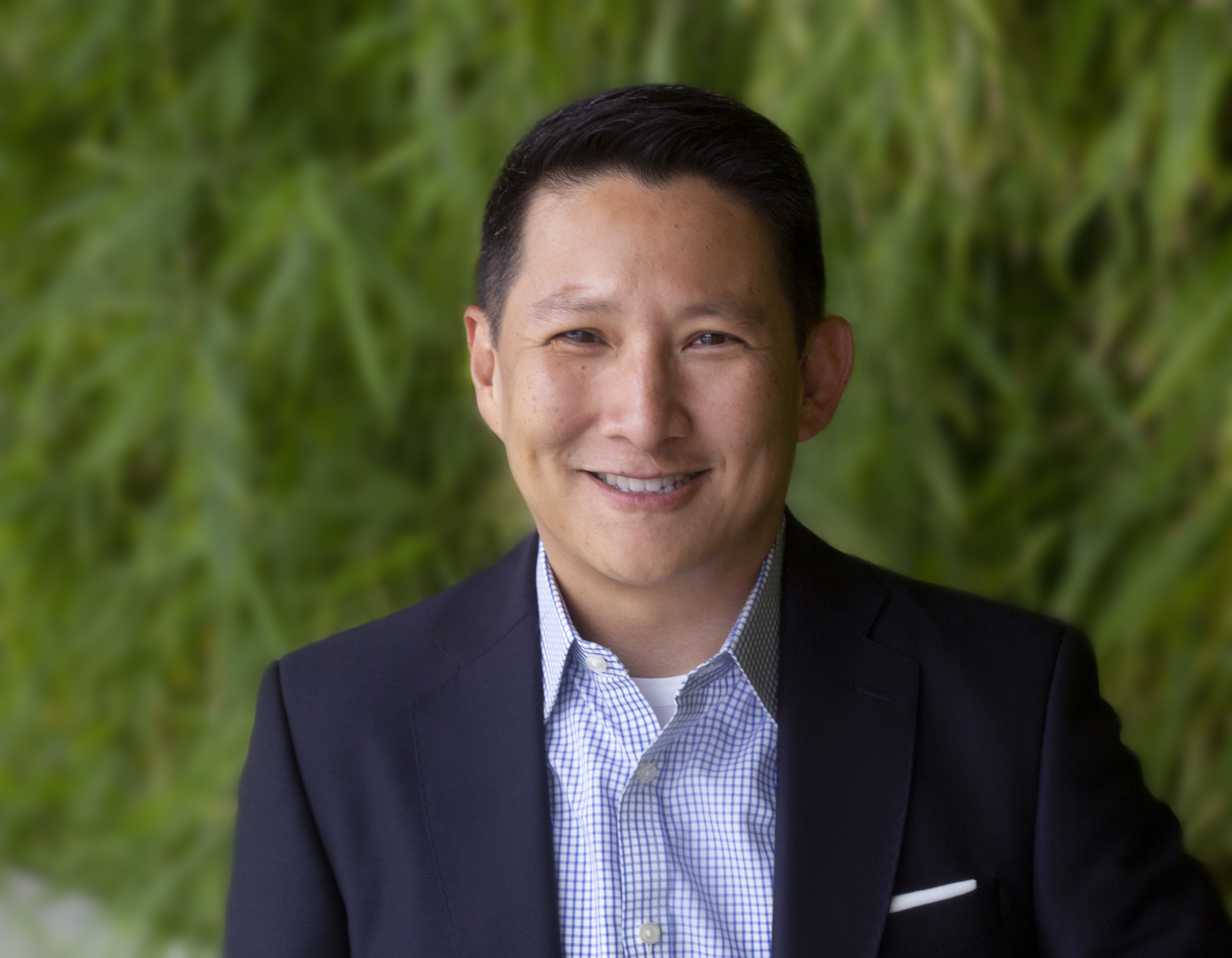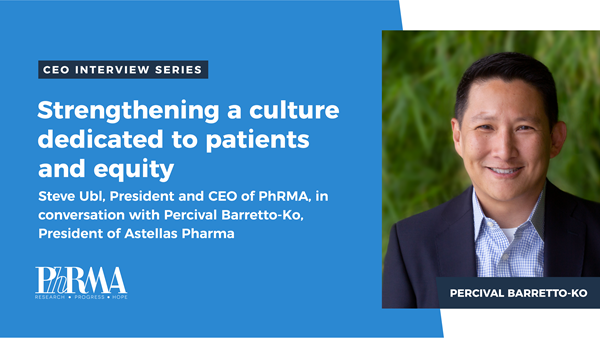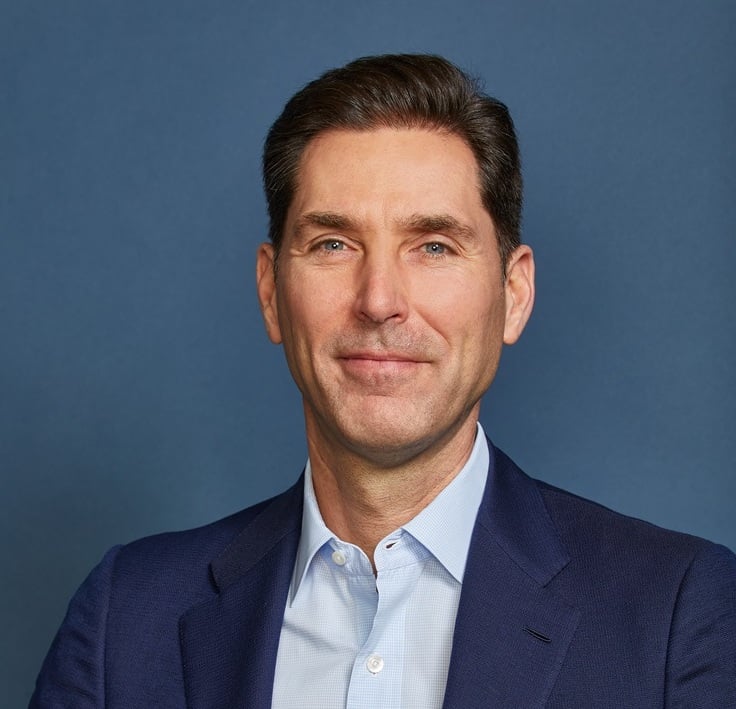 This year our industry has been working around the clock to combat the COVID-19 virus, including developing effective therapeutics to treat COVID-19 and vaccines to prevent future infections. Outside of the novel coronavirus, major social issues have been brought to the forefront of public discourse. We understand that systematic racism is as real as any disease and our industry is not immune. We need to stand up to racism and injustice because failing to do so impacts our collective wellbeing. Our industry is committed to learning and leading us forward.
This year our industry has been working around the clock to combat the COVID-19 virus, including developing effective therapeutics to treat COVID-19 and vaccines to prevent future infections. Outside of the novel coronavirus, major social issues have been brought to the forefront of public discourse. We understand that systematic racism is as real as any disease and our industry is not immune. We need to stand up to racism and injustice because failing to do so impacts our collective wellbeing. Our industry is committed to learning and leading us forward.
I had the opportunity to connect with Percival Barretto-Ko, President of Astellas US, about the company’s efforts in this space.
Stephen Ubl (SU): Thanks for taking the time to chat, Percival. This year, the world has banded together to fight COVID-19, and our industry is working tirelessly to that end. Can you speak to the work Astellas is doing for patients and communities in response to the pandemic?
Percival Barretto-Ko (PBK): COVID-19 has underscored our commitment to place the patient at the center of everything we do. With the patient serving as our North Star, the Astellas community banded together quickly at the onset of the pandemic to seek ways to serve the patients and the communities where we live and where we work.
With this in mind, one of Astellas’ first steps was to ensure there would be no disruption in our supply chain so that patients could be reassured they would not lose access to critical medicines. In addition, we halted clinical trial enrollments to avoid putting patients and healthcare professionals at risk. We also strengthened our patient support programs so people who have lost their jobs or were concerned about a loss of income could still get the medications they need. Months later, when it was deemed safe to continue with our trials, we adjusted our operations to accommodate patients who were not able to visit a doctor’s office by implementing initiatives like direct-to-patient drug shipments. This enabled us to ensure clinical trial continuity while minimizing delay in advancing the development of new medicines.
At Astellas, we are keenly aware of the communities around us. This year, we donated millions of dollars to global and national relief efforts and to programs here in Illinois, where our U.S. headquarters are based. In addition, we have sought opportunities to provide financial assistance and resources to hard-hit areas and their healthcare workers. I am proud of the way my Astellas colleagues have stepped up to meet unique needs within their communities – and to support their efforts, we increased the number of paid volunteer days available to employees. We also expanded our benefits to include job search assistance for our employees’ immediate family members who may have lost their jobs.
Culture and leadership are tested in times of uncertainty. It is incredibly gratifying to see how the biopharmaceutical industry broadly and Astellas specifically have risen to the challenge set by the worldwide pandemic – responding with groundbreaking innovation and a commitment to protecting the patients who rely on us.
SU: While defeating COVID-19 has been our industry’s main priority this year, our nation has been grappling with some major issues around racial inequality. I understand that Astellas has been proactive in creating a more inclusive work environment. Can you tell me about that?
PBK: I’m glad you asked, Steve. While building a diverse workforce and cultivating an inclusive culture has always been a top priority for Astellas, recent events have heightened our awareness that more must be done to advance the cause of equality in our country, and we all have a responsibility to move our society forward. We want to live up to our commitments as a company, an industry and a nation.
Engagement, diversity and inclusion have to be more than buzz words. They have to be deeply embedded into an organization’s DNA, aligned with a sense of ownership and accountability. At Astellas, our work to weave D&I throughout the fabric of our organization didn’t happen overnight. We began the foundational efforts nearly a decade ago and have made continual progress since, with several key milestones in 2014 and over the past three years.
Our journey took a leap forward in 2014, when we created seven employee impact groups (EIGs) for African-American, Asian, Hispanic, LGBTQ, military, disabled, and women employees. These groups, which introduce, coordinate, and support employees with shared interests, backgrounds and goals, have not only enhanced our cultural awareness, but have played critical roles in advising the business and producing an impact internally and externally.
In 2018, we further strengthened our commitment to diversity and inclusion by recruiting a new head of D&I to enhance our efforts and cement a sustainable strategy going forward. Last year, we formed a Diversity & Inclusion Governance Council, which I co-chair with our chief medical officer, Dr. Bernie Zeiher. The council includes more than two dozen leaders from across our organization to help ensure D&I remains a strategic imperative at Astellas. Through the council, we have established meaningful measures to keep us on track to meet related goals and to continue improving over time.
These steps helped us strengthen our commitment to engagement, diversity and inclusion and prepared us to swiftly respond to the events of 2020. Early into the pandemic, our Asian EIG held an internal event focused on discrimination that Asian Americans experienced during the onset of the COVID-19 pandemic. Following the death of George Floyd, our leadership issued a public statement standing in solidarity with all people working for equity and racial justice, and we implemented several employee support opportunities. Our African American EIG hosted an internal all-employee virtual forum that provided an opportunity to hear about the experiences and perspectives from some of our Black and Brown colleagues, and to discuss ways we can do more as an organization and as individuals through allyship and advocacy. We plan to continue these “Diversity Dialogues,” as they remind us how important it is to never stop learning, and never stop listening to others’ stories.
Finally, in October, I was proud to sign the CEO Action for Diversity & Inclusion pledge as a way of formalizing Astellas’ efforts to advance our diverse workforce and inclusive workplace goals.
SU: We know that from a scientific perspective, diversity is vital to conducting clinical trials. What work has Astellas done recently to make sure clinical trial participants are representative of patient populations?
PBK: This is a personal issue for me. Born and raised in the Philippines by a Korean mother and a Filipino-Chinese father, I am fully aware that my ethnic background is not necessarily reflected in the clinical trials taking place today. We know that some drugs can affect various racial and ethnic populations differently and so there is an obligation for all of us in the biopharmaceutical ecosystem to strengthen the diversity in our clinical trials. According to the National Institutes of Health, fewer than 10 percent of all enrolled trial participants are from minority populations.
I applaud PhRMA for its leadership in developing the recent industry-wide principles on enhancing clinical trial participation. The principles offer a constructive guide to help build on our existing efforts to work collaboratively to diversify our clinical trial enrollment.
At Astellas, among recent efforts, our teams have been working diligently to make the clinical trial process more understandable and accessible for potential participants. We’ve streamlined our contact processes for clinical trial recruitment and utilized health literacy best practices to make our forms and tools more reader-friendly. In addition, we’re increasing clinical trial participation and are focusing our selection of clinical trial sites around geographic regions with high populations of racially diverse patients. We also are working with patient advocacy groups and looking at decentralizing trials to make access easier.
The pandemic has underscored the health inequities that exist in our country – and we recognize that enhanced diversity in our trials can be an important part of the solution.
SU: That is interesting, thank you for sharing. I know your team has been doing work internally to attract and retain talent with diverse perspectives and backgrounds. What lessons have you learned that others can take with them in their hiring process?
PBK: It struck me when I read a recent Gallup report showing half of all workers in the U.S. are unhappy in their jobs. If an organization has a high proportion of its workforce not enjoying what it’s doing and not wanting to be there, then performance will inevitably suffer.
At Astellas, we have grounded ourselves on “3 Ps” – patients, people, performance. At the core of this philosophy is a simple message - when you have a tenacious, singular focus on the patient – and the right people in place – performance follows.
Last year, we launched an ambitious “three-year people strategy” aimed at attracting, retaining and developing top talent. In our hiring, we are conscious of building a workforce of high-potential, high-performing colleagues of all backgrounds. These efforts run in parallel with our D&I strategy. We are also working with our managers at all levels to help generate an inclusive atmosphere and culturally competent leadership to get the most from the talent we have. To this end, we recently rolled out a training program focused on implicit biases in the hiring process and leading diverse teams.
We believe that a commitment to diversity and inclusion in all that we do is essential to our mission of delivering value to patients. By embracing and prioritizing diversity amongst our people, we can engender greater creativity and depth into our planning and execution across the board. We are proud of the strides made thus far in our journey, and we look forward to new learnings and growth opportunities going forward.
As always, you can stay up-to-date with the work the biopharmaceutical industry is doing to combat COVID-19 here.



 This year our industry has been working around the clock to combat the COVID-19 virus, including developing effective therapeutics to treat COVID-19 and vaccines to prevent future infections. Outside of the novel coronavirus, major social issues have been brought to the forefront of public discourse. We understand that systematic racism is as real as any disease and our industry is not immune. We need to stand up to racism and injustice because failing to do so impacts our collective wellbeing. Our industry is committed to learning and leading us forward.
This year our industry has been working around the clock to combat the COVID-19 virus, including developing effective therapeutics to treat COVID-19 and vaccines to prevent future infections. Outside of the novel coronavirus, major social issues have been brought to the forefront of public discourse. We understand that systematic racism is as real as any disease and our industry is not immune. We need to stand up to racism and injustice because failing to do so impacts our collective wellbeing. Our industry is committed to learning and leading us forward. 

